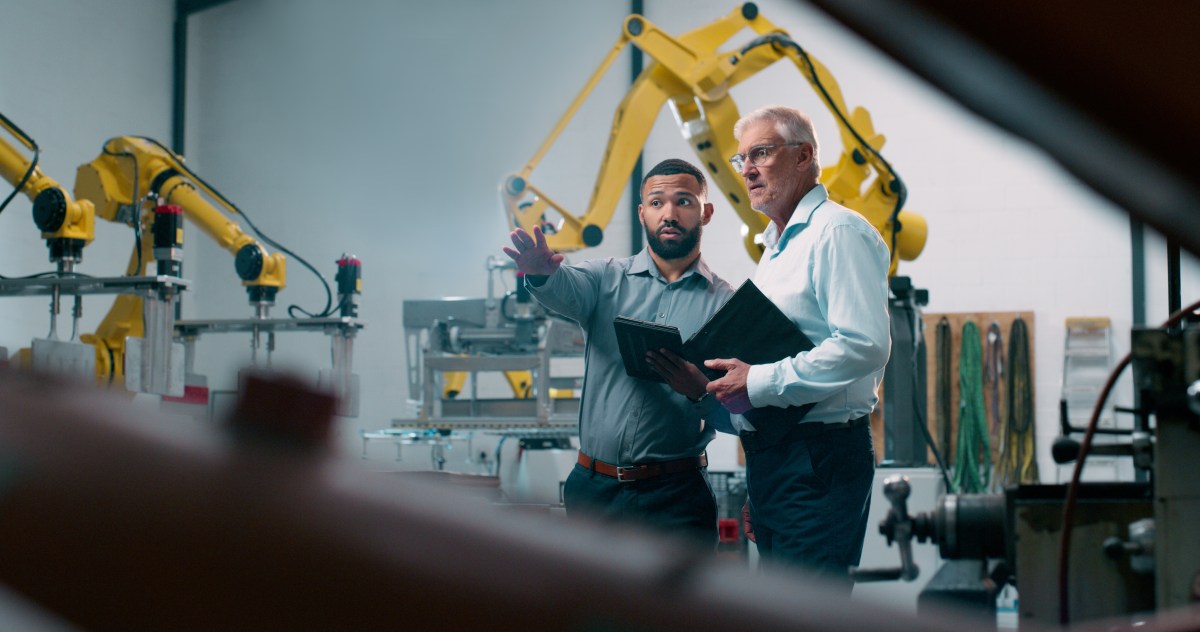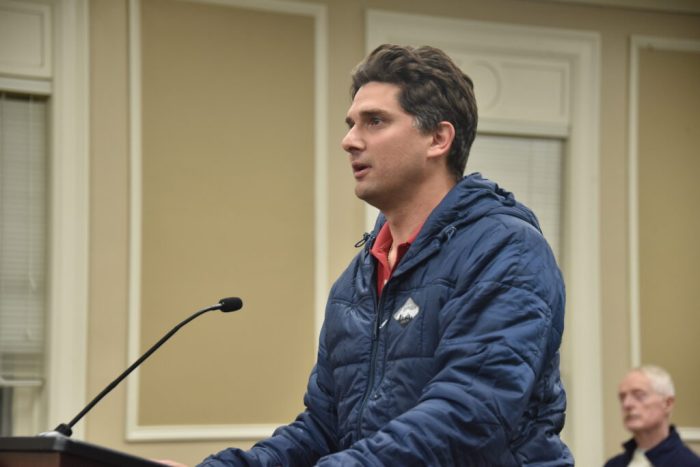Robert C. Kufner, chief executive of Hicksville-based manufacturing company Designatronics Inc., had a problem: He had 10 positions to fill and difficulty finding qualified candidates.
So, rather than posting help wanted ads, he took another kind of action. He hosted business executives, leaders of nonprofit organizations on Long Island, and government officials at his company as part of a broader effort by the industry to attract high school and college students as well as those looking to change careers to consider the manufacturing industry.
“We are in real need for qualified candidates for our open positions,” Kufner told the Press. “It is imperative to make an effort to reach out to candidates. We need to have a pipeline for job openings.”
“Long Island has not done a good job supporting” the needs of manufacturers, Kufner said.
Designatronics, a manufacturer of gears, bearings and motors, employs about 168 people. Business has been steady and the company is seeking to fill 10 jobs.
Long Island’s manufacturing sector, once the region’s most robust in the era when aerospace companies such as Grumman Corp. and Fairchild-Republic, were major employers, has taken its hits over the decades. Grumman has only several hundred employees left on the Island, after it was acquired in 1994 by California-based Northrop Corp. Fairchild closed 1987, and other large defense companies are gone as well.
Long Island manufacturers and government officials have been trying for years to recharge the industry. The latest effort, earlier this fall, was Manufacturing Month, which featured trade shows, a panel discussion and tours of manufacturing shops in Nassau and Suffolk counties. The initiative was supposed to be only one day, but was quickly expanded into a month-long program.
Subrina D. Oliver, an organizer of Manufacturing month and chief executive of O-High Technologies LLc., a workforce training company in Melville, said the initiative is important to Long Island’s future.
“When Grumman left, many people on Long Island believed manufacturing on Long Island was gone, too,” Oliver told the Press. “This is a misconception, and because of this, the local economy has suffered.”
According to the New York State Labor Department, there are 3,600 manufacturing companies on Long Island. They employ about 70,000 people whose average salary is about $74,000 a year.
Beginning salaries range from $45,000 to $65,000, according to industry experts.
Oliver and other experts say the sector suffers from several misconceptions. One that the industry is virtually gone and the other that the work is “dirty.”
Martin Cantor, an economist and the director of the Long Island Center for Socio-Economic Policy in Melville, told the Press that he believes high schools and colleges are not teaching the kind of skills manufacturers need.
“The skill set isn’t matching,” Cantor told the Press.
In addition, Cantor said, people coming out of college “can’t afford to live here.”
Dr. Richard Vogel, dean of the School of Engineering at Farmingdale State College, said that in today’s market, “skill sets can change quickly.”
“We need these companies to tell us what skills they need,” Vogel said.
Oliver and others in the sector plan to go out to schools and do all they can to change perceptions.
But even that may not be enough.
Jamie Moore, president of Ignite Long Island, a manufacturing consortium, said the problem may go deeper.
“The issue is that we don’t have an anchor tenant,” like a Grumman or a Fairchild-Republic, Moore told the Press. “We have mostly small manufacturers. We can’t get the traction we need without an anchor.”
Moore pointed to several recent initiatives he said would be helpful. U.S. Sens. Chuck Schumer and Kirsten Gillibrand, both New York Democrats, have secured $750,000 in funding for Long Island’s manufacturing sector. The money is to be used to develop public-private partnerships focusing on job creation, career management and business development. Both senators said the funds will have “a significant impact on Long Island’s low-and-moderate income persons and communities.”
Additionally, Nassau BOCES, using about $1.5 million in U.S. Navy funding, will build a 4,000-square-foot training center next to one of its buildings in the county by January 2025. The funding comes from the Navy’s Regional Talent Pipeline Training Program.
The Navy said in an announcement earlier this year that it had selected Long Island to be the location of its fifth such training center.
“The program will focus on helping employers build sustainable talent pipelines across the country,” the Navy said.
Moore, like others, has fought against the image of manufacturing as “dirty.”
“There are shops on Long Island that you could eat off the floor from,” Moore said. And, he conceded, there are others that are dirty, but by no means all.
There is yet another misconception about manufacturing. “I am trying to get people to stop saying that manufacturing is a job for a kid who isn’t going to college,” Moore said. “We’re looking for highly skilled people. That doesn’t mean it has to be the valedictorian. But we’re looking for the best.”




































